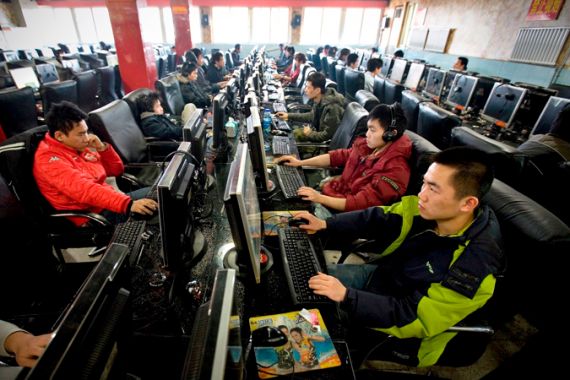How wired is your life?
Internet and social networks have become as common as “the air we breathe”, writes Zabala.

Both natural and social scientists seem to agree that in this new century, the cultural, social and political significance of the internet has exceeded all predictions: our networked environment has become vital for our existential well-being.
After 500 years of information and knowledge stored in print, today it has moved online and is modified constantly beyond the boundaries of time and space. We can quickly obtain great quantities of data and rapidly condense it on digital devices that are connected to cloud-based operating systems.
Even our relationships, whether sentimental or intellectual, are wired, that is, inter-connected: we make friends through social networks, e-mail our colleagues, and sometimes even have our psychiatric session through Skype.
Perhaps the time has come, now that the internet and social networks have become as common as the air we breathe, to ask what sort of interaction the web implies, that is, how wired our life has become.
It is interesting to notice how often this question is answered simply by noting the amount of time we spend online (following the US presidential campaign or admiring MOMA‘s online collection) rather than by qualifying our ability to interpret the wired world, that is, to remain autonomous.
Recently, I tried to answer this question in a different manner by emphasising the distinction between wired and online users. While the latter avoid using the internet as much as possible to protect their autonomy, the former immerse themselves in social networks regardless of the personal information they must sacrifice.
However, this difference does not point out how fundamentally wired our lives are and how this entails that our existence will always be involved as a consequence rather than an option; that is, no matter the amount of time we spend online, we are wired. We seem to be living in a condition where, paraphrasing Descartes, “only the wired exist“.
Wireless existence ‘impossible’
However, the impasse does not arise simply because wireless existence is impossible even if we stay away from computers (considering we are also constantly monitored by CCTV cameras without our consent), but also because we are forced to respond when we are hacked or overloaded with data. As it turns out, this is no longer a problem only for online editions of newspapers or software companies but also for all of us; indeed, with a wired existence, it has become inevitable.
|
“Our wired life demands from us a greater interpretative effort than in the past, when our choices were more limited to a restricted number of personal friends, newspapers and TV networks.” |
While different thinkers, such as John Locke and Norbert Weiner, foresaw these issues in their telementation and cybernetics theories, Gilles Deleuze and Félix Guattari diagnosed it more pointedly: “We do not lack communication. On the contrary, we have too much of it. We lack creation. We lack resistance to the present”.
Although the French thinkers were referring to communication, which is only one feature of being wired, they touched upon the main problem involved: our vital resistance, response and interpretation.
When we interpret, we seek not only to understand the data that confronts us, but also to add new vitality to the information, that is, to contribute to produce an alteration. Without such change, the data or news obtained will always overload us, that is, alienate or control our possibility for emancipation.
This is probably why the Italian philosopher, Gianni Vattimo, points out that “whoever does not succeed in becoming an autonomous interpreter, in this sense, perishes, no longer lives like a person but like a number, a statistical item in the system of production and consumption”. For hermeneutics (the philosophy of interpretation), the point is to resist through interpreting data instead of allowing its mass to overload our existence against our will.
As it turns out, our wired life demands from us a greater interpretative effort than in the past, when our choices were more limited to a restricted number of personal friends, newspapers and TV networks. Today, the choice is so vast that we must constantly be aware that being lied to, hacked, or overloaded is not only likely, but inevitable.
In sum, those who believe that our wired life can be measured by the amount of time we spend online are simply trying to avoid confronting the fact that we must allow our interpretations to take over when we are online; that is, we must create political alteration, resistance, or change as profound as the one Luther brought about by finding a new way to translate and interpret the Bible.
A wired life, like a religious one, must conserve its autonomy by interpreting the content independently of received ideas about the truth.
Santiago Zabala is ICREA Research Professor of Philosophy at the University of Barcelona. His books include The Hermeneutic Nature of Analytic Philosophy (2008), The Remains of Being (2009) and most recently, Hermeneutic Communism (2011, co-authored with G Vattimo), all published by Columbia University Press.
